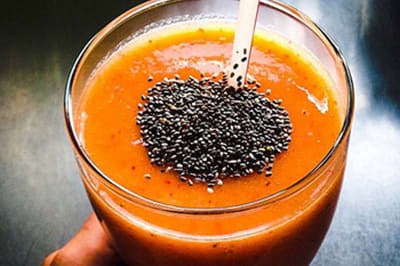LUCKNOW/ NEW DELHI: BJP suffered a huge setback on Wednesday when it lost the prestige bypolls for
Gorakhpur and Phulpur Lok Sabha seats in UP to the SP-BSP alliance, and could not take advantage of its resurrected alliance with JD(U) to wrest the Araria Lok Sabha seat in Bihar from RJD. The outcome sends out a warning signal to BJP about its strength in two states that are critical to its prospects of staying in office in Delhi beyond its current term. It could put a fresh question mark over its unquestioned frontrunner status for the next Lok Sabha polls, spoiling the party over the recent saffron successes in the north-east.
The twin victories will encourage SP and BSP to try the “winning formula” in the 2019 polls, an estimate reinforced by SP chief
Akhilesh Yadav’s “thanksgiving visit” to
Mayawati, the BSP boss who has bounced back as a factor, defying the obituaries which were penned after she drew a blank in LS polls and finished a miserable third in assembly elections.
The loss of Gorakhpur, the first since 1989, was a personal embarrassment for UP chief minister Yogi
Adityanath who had scored five straight victories since 1998 from the seat, which derives its name from the Gorakhnath Math headed by him. Adityanath vacated his seat after his appointment as CM, causing the byelection, and the rebuff will serve to chasten those who had proclaimed him the second saffron icon after PM Narendra Modi.
Keshav Maurya, deputy CM and the party’s prominent OBC face, had quit Phulpur seat after landing the number two job.
SP’s wins in Gorakhpur and Phulpur were facilitated by its understanding with BSP, signifying the threat that the BJP might face should Akhilesh and Mayawati, with their committed following among Yadavs and other sections of OBCs and Dalits, decide to go into the 2019 polls as a front. The two parties had teamed up successfully in 1993 to thwart BJP at a time when the ‘Mandir’ factor had not waned.
Their staunch constituencies assure them of the support of Muslims who overwhelmingly vote for the formation best positioned to defeat BJP. The saffron party’s landslides in UP — in 2014 when it won 71 seats (73 if two won by its ally Apna Dal are taken into account) out of 80 Lok Sabha seats and, again, in last year’s assembly elections — were helped by a division in the opposition ranks and, to a lesser extent, the split in Muslim votes.
In Gorakhpur, Congress’s Muslim candidate Sureetha Kareem won a meagre 2% votes, while community heavyweight Atiq Ahmad, who was in the Phulpur fray as an independent, could not take his vote share beyond 6.5%.
While the pooling of SP and BSP votes and, perhaps, higher-than-normal consolidation of Muslims played a decisive role, BJP’s own vote share in the two seats slid sharply from 2014, something which should worry BJP chief Amit Shah, who needs to retain the Hindi heartland. It’ll put pressure on the Centre and UP government to bridge the gap between promise and performance through faster delivery.
The defeats followed reverses in byelections in Alwar, Ajmer, Ratlam and Gurudaspur, and has brought BJP's Lok Sabha tally down to 275.
In neighbouring Bihar, besides Araria, Lalu Prasad’s RJD easily retained Jehanabad assembly seat while BJP kept Bhabhua. The three bypolls were caused by the deaths of sitting members and the results could be ascribed to the “sympathy factor”. But they also brought out the resilience of the Muslim-Yadav combination in the face of the revived BJP-JD(U) alliance which, in social terms, represents a combination of upper castes and sections of OBCs.
The results may not be evidence that Lalu Prasad’s appeal stretches beyond the trusted constituencies of Yadavs and Muslims, but they do show that the jailed RJD boss still has a base to build upon by striking alliances with Congress and others like Mahadalit leader Jitan Ram Manjhi or, possibly, BJP ally Upendra Kushwaha. It certainly restricts the elbow room for Nitish Kumar’s government to persist with whimsical decisions like a drastic prohibition policy or a third Rajya Sabha term for a gentleman who does not speak after having been sworn in.
The byelections further amplified the irrelevance of Congress in large swathes, with the party losing its deposits in both Gorakhpur and Phulpur. The results could also create complications for its claim that it is the only “natural” claimant for leadership of an “anti-BJP front” and force it to wrestle with a resurgent SP and BSP. To that extent, the pressure to keep Karnataka has increased.
BJP will certainly try to regain the momentum by winning Karnataka in order to retain its ‘favourite for 2019’ billing. The byelection results on Wednesday were certainly shaped by local factors — from the Brahmin-Rajput rivalry in Gorakhpur to sympathy factor in Bihar — but they added up to a larger message: BJP may still be the frontrunner but it is not unbeatable.
It must be reassured by former PM H D Deve Gowda’s refusal to align with the ruling Congress in the Karnataka polls, holding up the prospect of a split in anti-BJP votes.

















